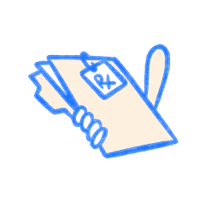The Ambulatory Care Nursing Certification (AMB-BC)
The Ambulatory Care Nursing Certification (AMB-BC) offered by the American Nurses Credentialing Center (ANCC) is a prestigious credential for nurses specializing in outpatient care. This certification demonstrates a nurse’s advanced knowledge, skills, and abilities in managing patient care outside the traditional hospital setting, including primary care clinics, outpatient surgical centers, and telehealth services.
This blog post will cover everything you need to know about the ANCC AMB-BC exam, from eligibility and costs to exam content and the best study resources. Whether you’re just starting your journey or preparing to take the test soon, this guide will help you confidently navigate the process.
Exam Overview
The ANCC AMB-BC Certification is designed to validate the competency of registered nurses (RNs) actively involved in ambulatory care nursing. This credential is recognized across the healthcare industry and is often required or highly recommended for nurses in outpatient care settings.
The exam itself consists of 150 questions, of which 125 are scored. The remaining 25 are pretest questions that are not scored but are used by the ANCC to determine their suitability for future exams. It’s important to note that these pretest questions are indistinguishable from the scored questions, so you’ll need to approach each question with the same level of diligence.
The exam is computer-based and offered at Prometric testing centers nationwide. It takes 3 hours to complete.
Exam Eligibility
To be eligible for the ANCC AMB-BC exam, candidates must meet the following criteria:
- Current RN License: You must have an active, unrestricted RN license in the United States or its territories.
- Experience: A minimum of 2 years of full-time experience as a registered nurse.
- Practice Hours: A minimum of 2,000 hours of clinical practice in ambulatory care or telehealth nursing within the last 3 years.
- Continuing Education: Completion of 30 hours of continuing education in ambulatory care nursing within the last 3 years.
These requirements ensure that candidates have a solid foundation in nursing and sufficient experience in the ambulatory care setting before attempting the certification exam.
Exam Cost
The ANCC AMB-BC exam costs vary depending on your membership status with nursing organizations.
- American Nurses Association Members: $295
- American Academy of Ambulatory Care Nursing Members: $295
- Non-Members: $395
Exam Content Outline
The ANCC AMB-BC exam is comprehensive, covering a wide range of topics essential to ambulatory care nursing. The exam is divided into four main content domains, each with specific focus areas. Here’s a breakdown of the content and the percentage of questions allocated to each domain:
I. Assess and Evaluate (40%, 50 questions)
This domain focuses on the nurse’s ability to assess and evaluate patient needs. It includes knowledge and skills related to:
- Disease processes (acute and chronic)
- Medications
- Preventative care/health promotion
- Expected outcomes
- Treatment evaluation
- Triage (in-person, virtual, telehealth)
- Physical and psychosocial assessment
- Clinical data interpretation
II. Plan and Implement (18%, 23 questions)
This section tests your competency in planning and implementing patient care, which involves:
- Care coordination (e.g., patient resources, population management)
- Disease-specific interventions
- Clinical tasks (e.g., procedures, point-of-care testing, wound care)
III. Professional Role (22%, 28 questions)
This domain assesses your understanding of the professional roles and responsibilities of an ambulatory care nurse:
- Scope and standards of practice (e.g., ANA, AAACN, legal/regulatory bodies)
- Professional development
- Fiscal health (e.g., reimbursement, resource allocation, billable services)
- Patient, family, and staff advocacy
- Leadership (e.g., risk management, process improvement)
- Safety and security (e.g., incident reporting, disaster training, safety rounds, root cause analysis)
IV. Education (19%, 24 questions)
The final section examines your ability to educate patients, families, and other healthcare professionals:
- Modes of educational delivery
- Diverse populations
- Communication barriers (e.g., language, technology, cognitive/sensory disabilities, health literacy)
- Professional communication (e.g., building trust, therapeutic communication, conflict resolution)
Understanding the weight of each content domain will help you prioritize your study time effectively, ensuring you are well-prepared for the topics that carry the most weight on the exam.
AMB-BC Study Resources
To maximize your chances of passing the ANCC AMB-BC exam on your first attempt, utilizing high-quality study materials is crucial. Here are some recommended textbooks that cover the exam content in-depth:
- Health Promotion Throughout the Life Span, 10th Edition (ISBN 978-0323761406)
- Core Curriculum for Ambulatory Care Nursing, 4th Edition (ISBN 978-1940325507)
- Scope & Standards of Practice for Professional Ambulatory Care Nursing, 9th Edition (ISBN 978-1940325361)
- Legal and Ethical Issues for Health Professions, 5th Edition (ISBN 978-0323827508)
- Interpersonal Relationships, 9th Edition (ISBN 978-0323551335)
Additional Study Tips
- Practice Questions: Regularly complete ANCC AMB-BC practice questions to familiarize yourself with the exam format and question styles.
- Time Management: Develop a study schedule that allows ample time for each content domain, especially those that are more heavily weighted.
- Join a Study Group: Collaborating with peers can provide additional insights and motivate you.
- Take Care of Yourself: Get enough sleep, exercise, and relaxation to keep your mind sharp.
Begin Your Certification Journey
Achieving the ANCC AMB-BC certification is a significant milestone in your nursing career, especially if you’re committed to ambulatory care. The certification validates your expertise and opens doors to advanced career opportunities and potential salary increases. By understanding the exam structure, meeting the eligibility requirements, and preparing with the right resources, you’ll be well on your way to passing the exam on your first attempt.


